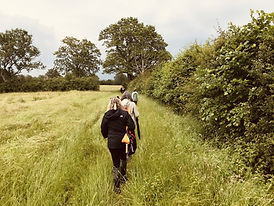
The Life Adventure
Wellbeing for Business
Organisations bring us in when they want to reduce stress, align teams, or spark new thinking.
A healthy, inspired team isn’t a “nice to have”, it’s a business driver.
Poor health and presenteeism cost UK businesses billions each year
78% of employees would stay longer at a company that prioritises their wellbeing
(HR Review)
FTSE 100 companies that focus on wellbeing outperform peers by 10% (Business in the Community)
We’ve been pioneering workplace wellbeing for over 20 years - before it was a buzzword, before “mental health” became mainstream.
We’re a collective of facilitators, coaches, and changemakers trusted by B Corps, government departments, and FTSE 100 companies.
Small(ish) but mighty, we’re known for solutions that clients describe as magical, human, and refreshingly different.
We don’t believe in cookie-cutter solutions.
Instead, we tailor every programme to your people and your challenges, blending science-backed practices with holistic approaches.
From Breathwork to leadership labs, Forest Bathing to Storytelling, we bring new ways of thinking that actually shift the dial.

What Clients Say:

“Everyone talks about building a relationship with your customer. I think you build one with your employees first.”
– Angela Ahrendts (Senior Vice President, Apple)












